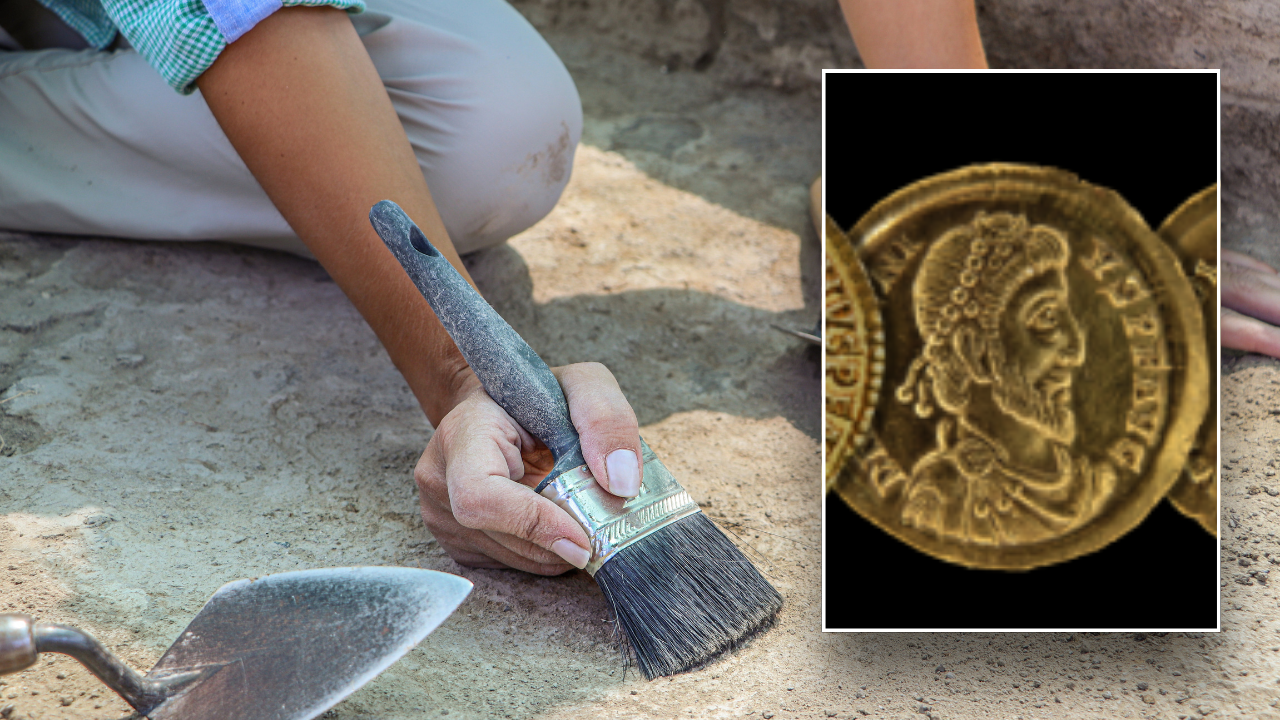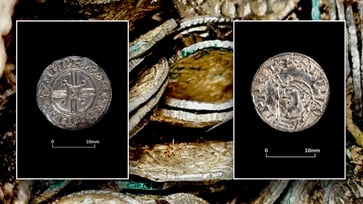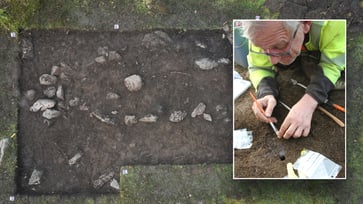Archaeologists are baffled by the discovery of a hoard of ancient Roman coins: 'Extremely rare'
To excavate the coins, archaeologists had to avoid World War II explosive devices.

An extremely rare cache of gold coins from the fourth century A.D. was recently discovered, ending a four-year excavation project in Luxembourg.
The INRA in Luxembourg announced that 141 coins were discovered during excavations that took place over several years, with care taken to avoid land mines from World War II.
"The INRA's statement stated that these operations had to consider the specific dangers of the region, which were caused by the presence of numerous munitions and explosive devices from the Second World War. To address these dangers, archaeologists have collaborated with the Luxembourg Army's Mine Clearance Service (SEDAL)."
The hoard of coins contains images of nine Roman emperors who ruled from 364 to 408 A.D., including Eugenius, a notorious ruler who was deemed illegitimate by the Eastern Roman Empire, or the Byzantine Empire.

The Western Roman Empire was ruled by Eugenius from 392 to 394, but he was never recognized as a legitimate ruler by the Byzantines. He was captured and executed at the Battle of the Frigidus in 394.
The government of Luxembourg gave 308,600 euros to the beneficiaries of the coin hoard, which were made of pure gold and were referred to as "solidi" by INRA.
The INRA stated that the value of the solidi was determined by independent numismatic experts who evaluated the excellent condition of the coins and the presence of rare copies, specifically three issues of the usurping Emperor Eugenius who ruled for only two years (392-394).

Despite the mystery surrounding the burial of a valuable hoard, experts are currently investigating the reason behind its abandonment.
"The discovery of an ancient monetary deposit in its archaeological context is a major archaeological find because it is extremely rare to study it in its entirety. Examining it will provide insights into the motivations that led to its burial."
A 1,000-year-old hoard of coins was discovered in Suffolk, England, by English officials last week, at the site of a proposed nuclear plant.

In the autumn, Norwegian archaeologists unearthed Viking tombs containing coins, jewelry, and other riches.
lifestyle
You might also like
- Post-inauguration, the surprising truths about DC travel costs.
- Melania and Donald Trump celebrate their 20th wedding anniversary: View the images.
- John Schneider, known for his role in 'Dukes of Hazzard,' remains steadfast in his belief: "God has a plan."
- Notre Dame football coach and Catholic convert is 'not shy about' the importance of faith.
- Trump confidant and unofficial spiritual advisor: "God is granting America another opportunity"



















